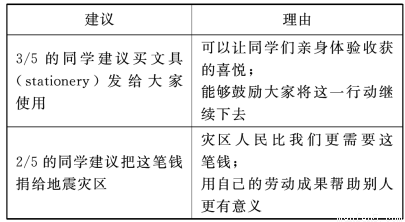题目内容
When we worry about who might be spying on our private lives, we usually think about the Federal agents. But the private sector outdoes the government every time. It’s Linda Tripp, not the FBI, who is facing charges under Maryland’s laws against secret telephone taping. It’s our banks, not the Internal Revenue Service (IRS), that pass our private financial data to telemarketing firms.
Consumer activists are pressing Congress for better privacy laws without much result so far. The legislators lean toward letting business people track our financial habits virtually at will.
As an example of what’s going on, consider U.S. Bancorp, which was recently sued for deceptive practices by the state of Minnesota. According to the lawsuit, the bank supplied a telemarketer called Member Works with sensitive customer data such as names, phone numbers, bank-account and credit-card numbers, social security numbers, account balances and credit limits.
With these customer lists in hand, Member Works started dialing for dollars-selling dental plans, videogames, computer software and other products and services. Customers who accepted a “free trial offer” had 30 days to cancel. If the deadline passed, they were charged automatically through their bank or credit-card accounts. U.S. Bancorp collected a share of the revenues.
Customers were doubly deceived, the lawsuit claims. They didn’t know that the bank was giving account numbers to Member Works. And if customers asked, they were led to think the answer was no.
The state sued Member Works separately for deceptive selling. The company denies that it did anything wrong. For its part, U.S. Bancorp settled without admitting any mistakes. But it agreed to stop exposing its customers to nonfinancial products sold by outside firms. A few top banks decided to do the same. Many other banks will still do business with Member Works and similar firms.
And banks will still be mining data from your account in order to sell you financial products, including things of little value, such as credit insurance and credit-card protection plans.
You have almost no protection from businesses that use your personal accounts for profit. For example, no federal law shields “transaction and experience” information-mainly the details of your bank and credit-card accounts. Social Security numbers are for sale by private firms. They’ve generally agreed not to sell to the public. But to businesses, the numbers are an open book. Self-regulation doesn’t work. A firm might publish a privacy-protection policy, but who enforces it?
Take U.S. Bancorp again. Customers were told, in writing, that “all personal information you supply to us will be considered confidential.” Then it sold your data to Member Works. The bank even claims that it doesn’t “sell” your data at all. It merely “shares” it and reaps a profit. Now you know.
1.Contrary to popular belief, the author finds that spying on people’s privacy ________.
A. is practiced exclusively by the FBI
B. is more common in business circles
C. has been intensified with the help of the IRS
D. is mainly carried out by means of secret taping
2.We know from the passage that ________.
A. the state of Minnesota is considering drawing up laws to protect private information
B. most states are turning a blind eye to the deceptive practices of private businesses
C. legislators are acting to pass a law to provide better privacy protection
D. lawmakers tend to give a free hand to businesses to inquire into customers’ buying habits
3.When the “free trial” deadline is over, you’ll be charged without notice for a product or service if ________.
A. you happen to reveal your credit card number
B. you fail to cancel it within the specified period
C. you fail to apply for extension of the deadline
D. you find the product or service unsatisfactory
4.Businesses do not regard information concerning personal bank accounts as private because ________.
A. it is considered “transaction and experience” information is not protected by law
B. it has always been considered an open secret by the general public
C. its sale can be brought under control through self-regulation
D. its revelation will do no harm to consumers under the current protection policy
1.B
2.D
3.B
4.A
【解析】
试题分析:文章大意:文章主要探讨我们作为消费者的隐私信息恰恰是金融部门泄露而非政府行为,因此应加强在金融活动中对个人隐私相关法律的建立健全。
1.细节理解题题。根据第一段中“It’s Linda Tripp, not the FBI, who is facing charges under Maryland’s laws against secret telephone taping. It’s our banks, not the Internal Revenue Service (IRS), that pass our private financial data to telemarketing firms.判断出正是银行等金融机构在泄露我们的隐私。
2.细节理解题。根据第第二段可以判断出针对商家在消费者方面的信息获取法律方面没有限定,故选D。
3.细节理解题。根据第第四段中“If the deadline passed, they were charged automatically through their bank or credit-card accounts. U.S. Bancorp collected a share of the revenues”,可以判断出金融机构会利用时间上的限定来获取利益,故选B。
4. 细节理解题。 根据第八段中“You have almost no protection from businesses that use your personal accounts for profit. For example, no federal law shields “transaction and experience” information-mainly the details of your bank and credit-card accounts.”可以判断出商家之所以不认定个人信息作为隐私主要是因为法律上没有支持, 故A正确。
考点:考查生活知识阅读

